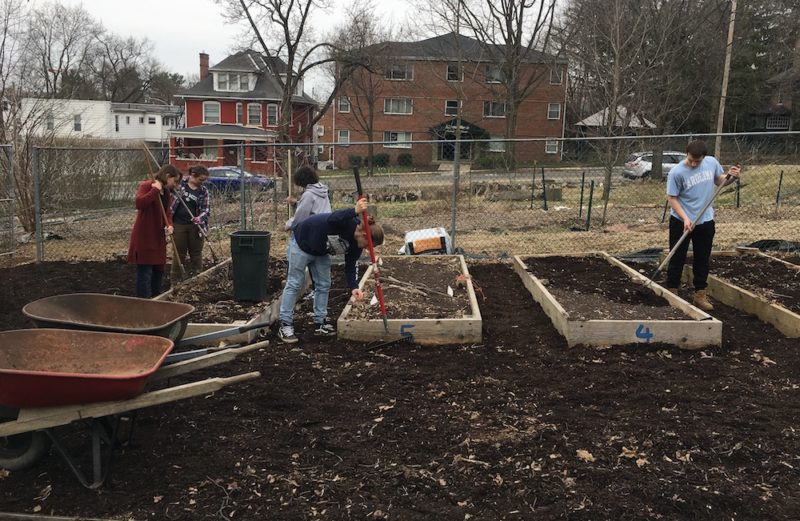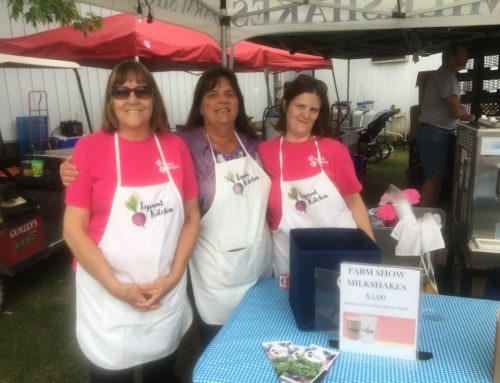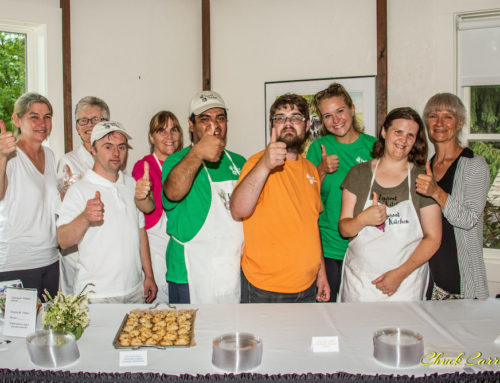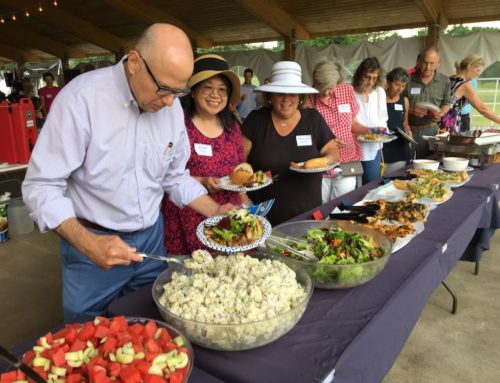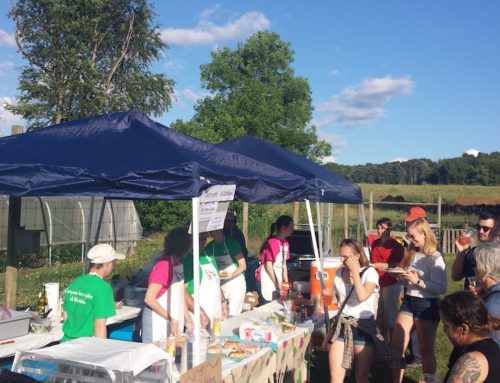PSU Sustainability Institute Interns join forces with Taproot Kitchen to begin spring work on the Mazza Community Garden.
If you were driving on the 400 block of South Atherton Street on Thursday, April 4 between 3:00pm and 6:00pm you may have noticed a team of gardeners hard at work. This was the first of several scheduled garden work days to prepare the Mazza Community Garden for another season of fresh herbs, vegetables, and berries that will be harvested and processed by the Taproot Kitchen Community for catering events in the upcoming summer and fall seasons.
Each year, student interns from the PSU Sustainability Institute volunteer in the garden to fulfill their community outreach hours required each semester. This spring’s volunteers were Mikaela Axman, Lou Waryanka, Abigail Kerr, Jacob Yentzer, and Lana Meijas – all of whom are taking a 3 credit spring course through Penn State that introduces them to the many things they need to know to be successful this summer working and running the student farm at Penn State. The program helps the students understand important concepts like crop cover and seed transportation. They have already begun planting crops in a greenhouse and a high tunnel.
This summer on campus, they will learn how to carry out various roles that contribute to the success of the farm such as managing a CSA and wholesaling produce to the campus dining facilities. “I feel that the experience with the community garden today allowed us all to get experience working outside with our hands and to learn more about gardening on a smaller scale,” remarked Mikaela Axman, one of the student organizers.
Pat Moore and Sharon Schafer, members of the Taproot Kitchen team, organized the tasks for the afternoon. A group of interns cleaned the beds, clearing the leaves and twigs and preparing the area for planting and new growth. After removing winter debris, wheelbarrows were filled with mulch that was spread around the raised beds and pathways throughout the garden. Compost was added to the raised beds after leaves were raked and prepared for spring planting. The raised beds are numbered as a means of indexing what is planted each year. In the past they have typically been used for herbs, such as parsley and basil, and vegetables, such as leeks, tomatoes and peppers. Along the fence on the other side of the beds are blueberry bushes, and squash beds. Pat shared that, “The interns did a tremendous job in helping to get the garden ready for the spring planting season.”
Help Us Grow
Taproot Kitchen depends on the support of our local community. From donations of extra food to funds that directly impact our ability to streamline our catering business, your extra help goes toward helping adults with intellectual disabilities engage in meaningful work and enter into the wider community of State College.
Taproot Kitchen is a 501(c)(3) organization, and all donations are tax-deductible.

